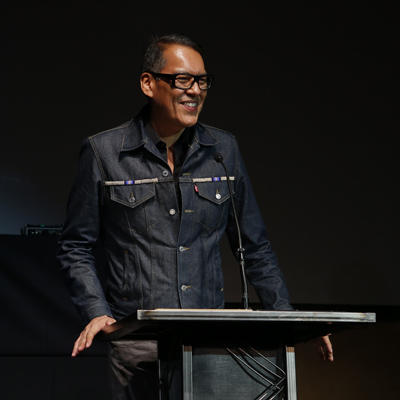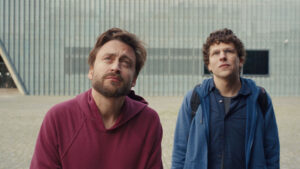Park City, Utah — Sundance Institute marks the 20th anniversary of its Native American and Indigenous Program with a series of events around the country for Native artists and the public. The Institute also announced today the four artists selected for the 2014 NativeLab Fellowship, which is the centerpiece of the Institute’s year-round work with the Native community and is one of 10 residential labs the Institute will host for artists this summer, collectively representing the most promising new independent film and theatre projects.
True to founder Robert Redford’s original vision, the Institute maintains a strong commitment to supporting Native and indigenous filmmakers. The Native program has built and sustained a unique support cycle for indigenous artists through grants, labs, mentorships, a fellowship program at the Sundance Film Festival, and screenings for Native communities to inspire new generations of storytellers. Currently operating programs in the United States, Canada, and formerly New Zealand and Australia, the Institute has established a rich legacy of work by supporting more than 300 Native and indigenous filmmakers, including Taika Waititi, Sterlin Harjo, Billy Luther, Andrew Okpeaha MacLean, Aurora Guerrero, Sydney Freeland and Yolanda Cruz.
“Native American and Indigenous filmmakers are rooted in a long and deep tradition of storytelling,” said Sundance Institute president and founder Robert Redford. “I am proud of the work that Sundance Institute has done over the past 20 years to encourage Native American artists to share their stories, take risks with their work, and to both share with their communities and to give of their time and expertise to encourage younger Native American artists to do the same. Their stories enrich and inspire us all.”
Bird Runningwater (Cheyenne/Mescalero Apache), Director of the Sundance Institute Native American and Indigenous Program, said, “I am honored to be celebrating 20 years of support for some of the most creative and impactful Native American and indigenous voices of our time. Over the course of the next year I look forward to paying tribute to some of our distinguished program alumni and also fostering the next generation of Native American filmmakers.”
The NativeLab Fellowship is a a two-stage development program that provides continuous and direct support to Native American, Native Hawaiian and Alaskan Native film artists. For the first stage, filmmakers participate in an intensive four-day workshop (May 19-23) on the homelands of the Mescalero Apache Tribe in New Mexico. The second stage will bring Fellows to the Native Forum during the 2015 Sundance Film Festival in Park City, Utah in January and provide opportunities for them to meet and hear from film industry professionals.
The artists and projects selected for the NativeLab Fellowship are:
Missy Whiteman (Northern Arapaho/Kickapoo) / The Coyote Way Trilogy (Going) Back Home
Reality and ancient lore merge in a vivid, dream-like voyage for a Charlie, a young boy and his time traveling bicycle on a quest for his identity as Coyote the Trickster.
Daniel Flores (Yaqui) / Viva Diva
Two trans women pack up and leave their hometown with hope for a better future.
Carmen Tsabetsaye (Zuni / Zia Pueblo) / Puebloan in Praha
After moving to the Czech Republic, a young pueblo woman learns that her brother has died and her family is torn apart, through new found friendships she cultivates a new sense of family.
Christopher Kahunahana (Native Hawaiian) / Karaoke Kings
A suicidal homeless Hawaiian singer struggles to survive on the deadly streets of Honolulu’s Chinatown long enough to compete in the KARAOKE KING competition, — the everyman bar version of “American Idol.” This could be his only shot at fame, redemption and most importantly, love.
Creative Advisors for the NativeLab are Ligiah Villalobos (La Misma Luna), Catriona McKenzie (Sattelite Boy, Mr. Patterns) Chris Eyre (Smoke Signals,Skins, Edge of America) and Andrew Maclean (Sikumi, On the Ice).
In addition to the NativeLab, the Institute will partner with Longhouse Media in 2015 to host a series of workshops in Seattle for Native American and indigneous artists as part of a new initiative called 4th World.
The Institute invites the public to attend the following events celebrating the 20th Anniversary of its Native American & Indigenous Program:
Carte Blanche: Sundance Institute’s Native American and Indigenous Program
The Museum of Modern Art, New York, NY; July 10-21, 2014
This exhibition consists of ten programs of dramatic features and documentaries—nine features and 11 shorts in total—by Native American and indigenous directors from the United States, Australia, New Zealand and Canada. Filmmakers attending the screenings at MoMA for guided discussions and artist conversations include Taika Waititi (Te Whanau a Apanui) (Boy, 2010), Chris Eyre (Cheyenne/Arapaho) (Smoke Signals, 1998) Heather Rae (Cherokee) (Trudell, 2005), Andrew Okpeaha MacLean (Inupiaq) (On the Ice, 2011), and Sterlin Harjo (Seminole/Creek) (This May Be The Last Time, 2014) and Sydney Freeland (Navajo) (Drunktown’s Finest, 2014)
Sundance Institute Native American and Indigenous Screening Series
Jean Cocteau Cinema in Santa Fe, New Mexico; August 20-24
In conjunction with the Santa Fe Indian Market, Sundance Institute will screen 6 feature-length films and 2 short films by Native American and indigenous filmmakers. Films in the series include: Drunktown’s Finest by Sydney Freeland (Navajo); Miss Navajo by Billy Luther (Navajo/Hopi/Laguna Pueblo); On The Ice by Andrew Okpeaha MacLean (Inupiaq); Skins by Chris Eyre (Cheyenne/Arapaho); Boy by Taika Waititi (Te Whanau a Apanui); This May Be The Last Time by Sterlin Harjo (Seminole/Creek Nations); Shimásání by Blackhorse Lowe (Navajo) and Gesture Down – I Don’t Sing by Ceder Sherbert (Kumeyaay).
Sundance Institute’s Native American Short Films and panel discussion
MocNa in Santa Fe, New Mexico; May 24 – July 31, 2014
Four short films programmed by Sundance Institute will screen in a loop in the Helen Hardin Media Gallery. Artists and films include: Sikumi (On The Ice) by Andrew Okpeaha MacLean (Inupiaq); Nikamowin (Song) by Kevin Lee Burton (Swampy Cree); Shimásání by Blackhorse Lowe (Navajo); Gesture Down – I Don’t Sing by Ceder Sherbert (Kumeyaay);and Two Cars One Night / New Zealand by Taika Waititi (Te Whanau Apanui).
Sundance Institute Native American and Indigenous Screening Series
Museum of Indian Arts and Culture in Santa Fe, New Mexico; August 31 – October 4
Five feature films programmed by Sundance Institute will screen in the Kathryn O’Keefe Theatre. Artists and films include: Smoke Signals by Chris Eyre (Cheyenne/Arapaho); Boy by Taika Waititi (Te Whanau a Apanui); On the Ice by Andrew Okpeaha MacLean (Inupiaq); Trudell by Heather Rae (Cherokee) and Incident at Oglala by Michael Apted.
The Sundance Institute Native American and Indigenous Program is supported by Surdna Foundation, Ford Foundation, Time Warner Foundation, NBCUniversal, Cindy and Alan Horn, Princess Grace Foundation, and SAGIndie.
For more information on the Native American and Indigenous Program visit sundance.org/native
Sundance Institute
Founded by Robert Redford in 1981, Sundance Institute is a global, nonprofit organization dedicated to nurturing independent artists and introducing audiences to their new work. Internationally recognized for its Sundance Film Festival, the Institute annually supports over 200 artists with more than a dozen labs for directors, screenwriters, documentary editors, composers, playwrights, producers and New Frontier artists and grants more than $2 million to artists. The Institute has supported projects including Fruitvale Station, Ain’t Them Bodies Saints, Beasts of the Southern Wild, Question Bridge, Wadjda, God Loves Uganda, Gideon’s Army, Spring Awakening, Appropriate and Fun Home. Join Sundance Institute on Facebook, Instagram, Twitter and YouTube.



